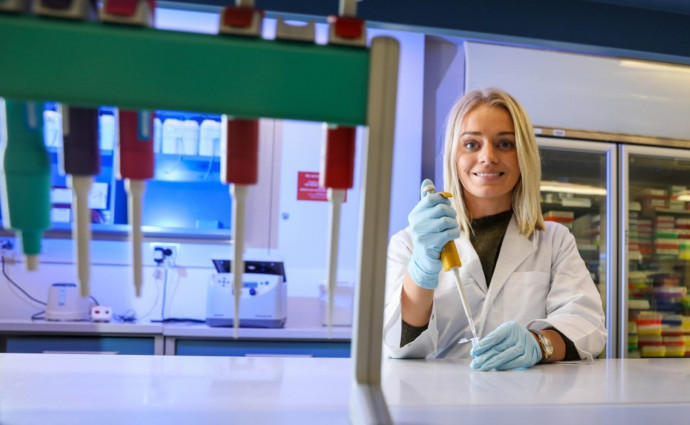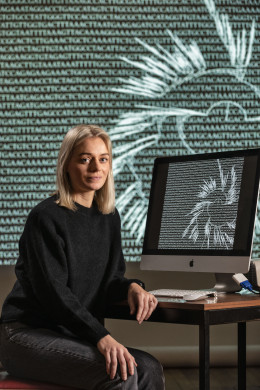Jemma Geoghegan

2020: Dr Jemma Geoghegan, Department of Microbiology and Immunology, University of Otago and Institute of Environmental Science and Research (ESR), has been awarded a Rutherford Discovery Fellowship for research entitled ‘Ecological barriers and drivers of virus emergence’
Published 22 Whiringa-ā-nuku October 2020
Biography

Dr Jemma Geoghegan. Photo: University of Otago
Dr Jemma Geoghegan is an evolutionary biologist and virologist with a strong research focus in emerging infectious disease. She received her PhD in population genetics from the University of Otago in 2013, before conducting research at New York University, the University of Sydney and Macquarie University. She returned to Aotearoa New Zealand this year where she is currently a Senior Lecturer in the Department of Microbiology and Immunology at University of Otago and an Associate Senior Scientist at the Institute of Environmental Science and Research (ESR). She is a former Coffey Postdoctoral Fellow and has received support from the Australian Research Council and the Ministry of Business, Innovation and Employment (MBIE) for her research.
Research summary
As we have recently learned from the global COVID-19 pandemic, emerging infectious diseases can appear suddenly, wreaking havoc on health and economies across the globe. While seemingly coming out of nowhere, novel viruses often emerge by ‘jumping’ into new hosts. The resulting epidemic can have catastrophic effects on the new host population and beyond. If the new host is an already endangered species, for example, an epidemic could lead to extinction, while an epidemic in an agriculturally important species could have devastating effects for that industry.
Viruses are the most abundant biological entities on Earth, yet the vast majority remain undescribed. While advances in DNA sequencing are beginning to revolutionise the study of virology, we understand very little about how viruses evolve to make the jump to a new host species. Dr Geoghegan will sequence genetic material from diverse animal species in Aotearoa New Zealand to identify, characterise and analyse any viruses present in host organisms. This will allow her to determine the host and virus ecological traits that facilitate virus host-jumping and provide an assessment of viruses present in native and introduced animals. This will furnish new insights into national biodiversity. She will also determine the association between the biodiversity of hosts and viruses, and increase our understanding of how viruses evolve in natural populations.
This will be the first study examining virus ecology and evolution of such magnitude in Aotearoa. The data obtained will provide important general insights into the fundamental mechanisms of virus evolution and disease emergence.
